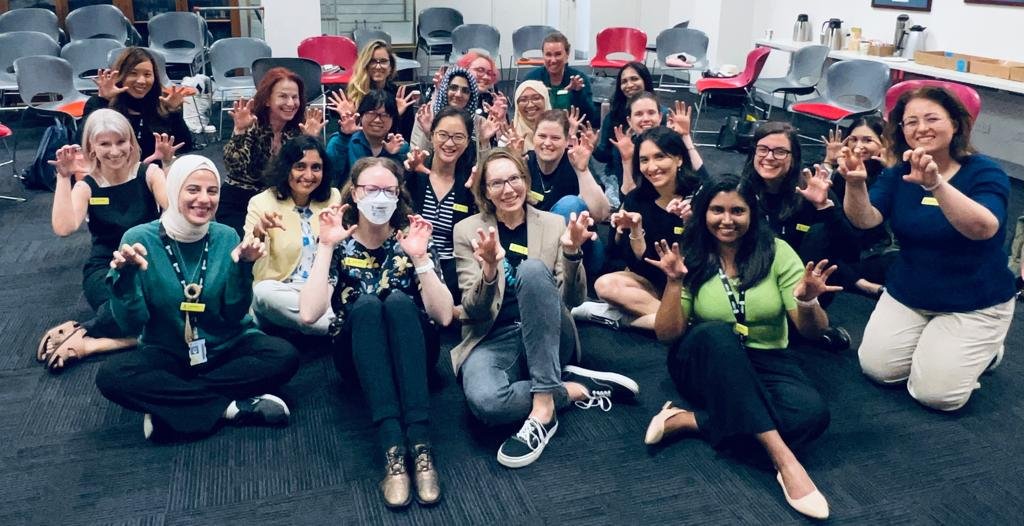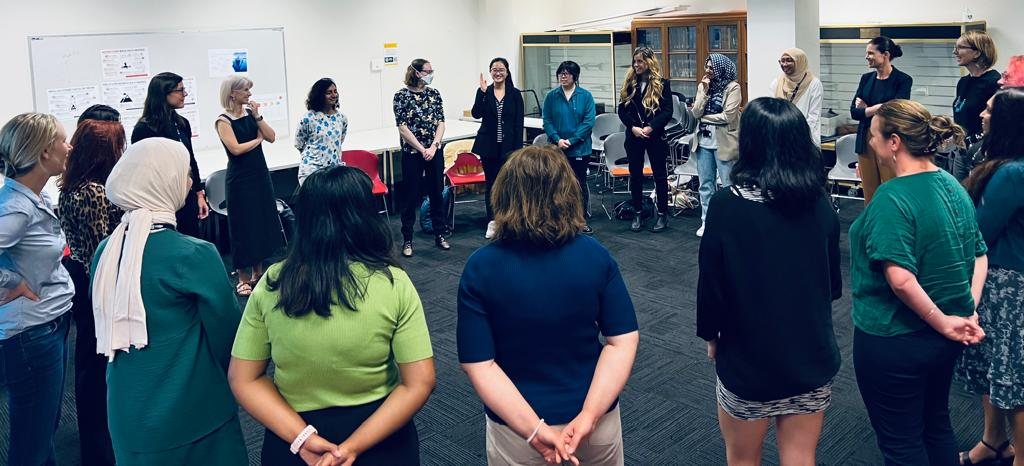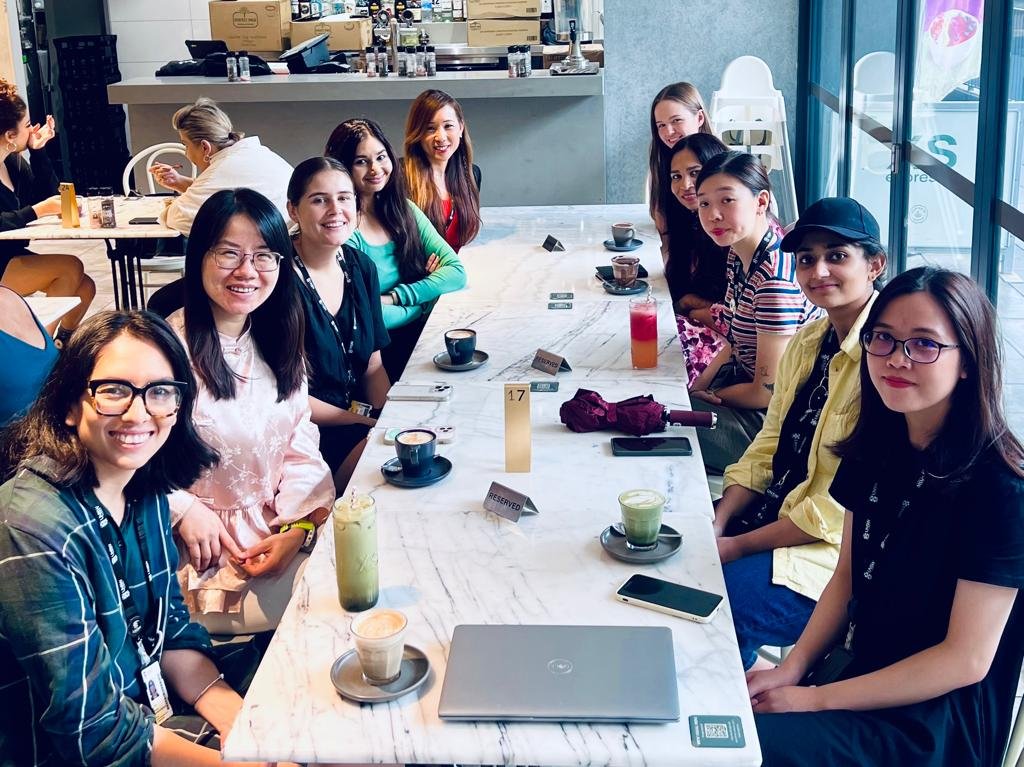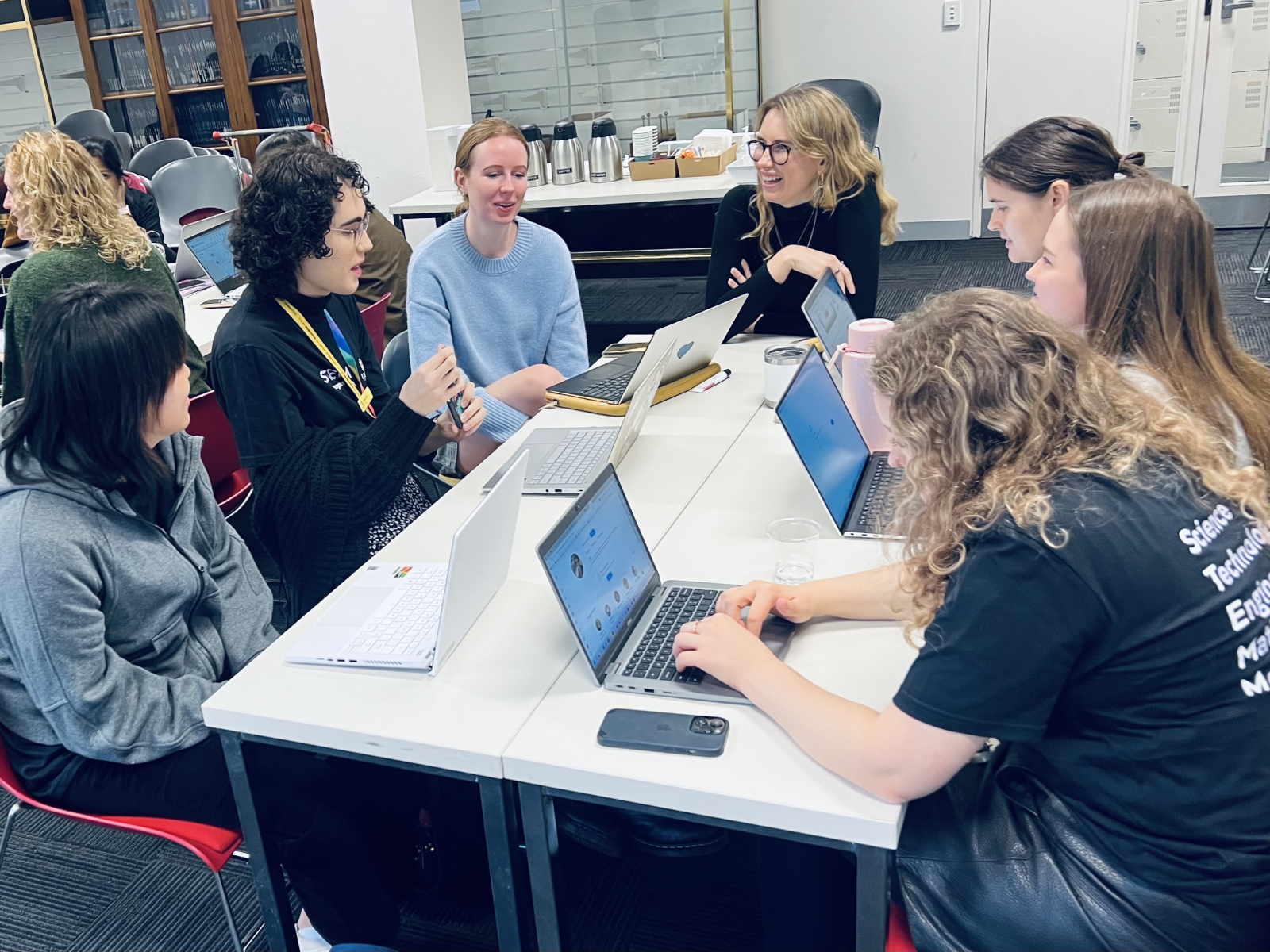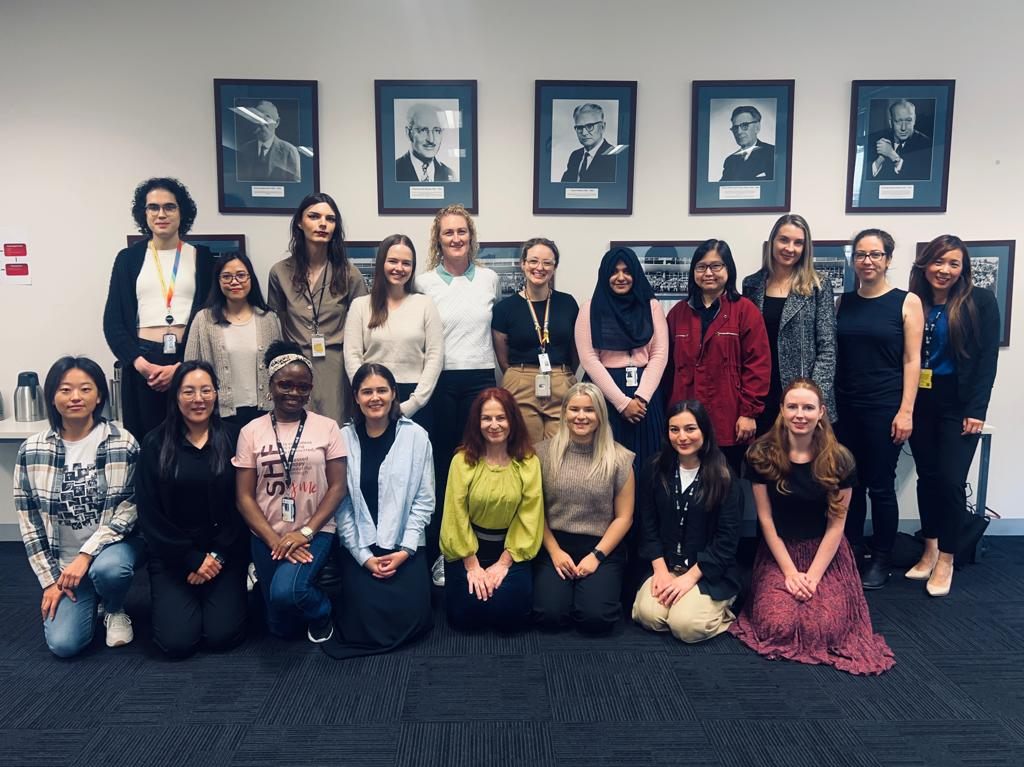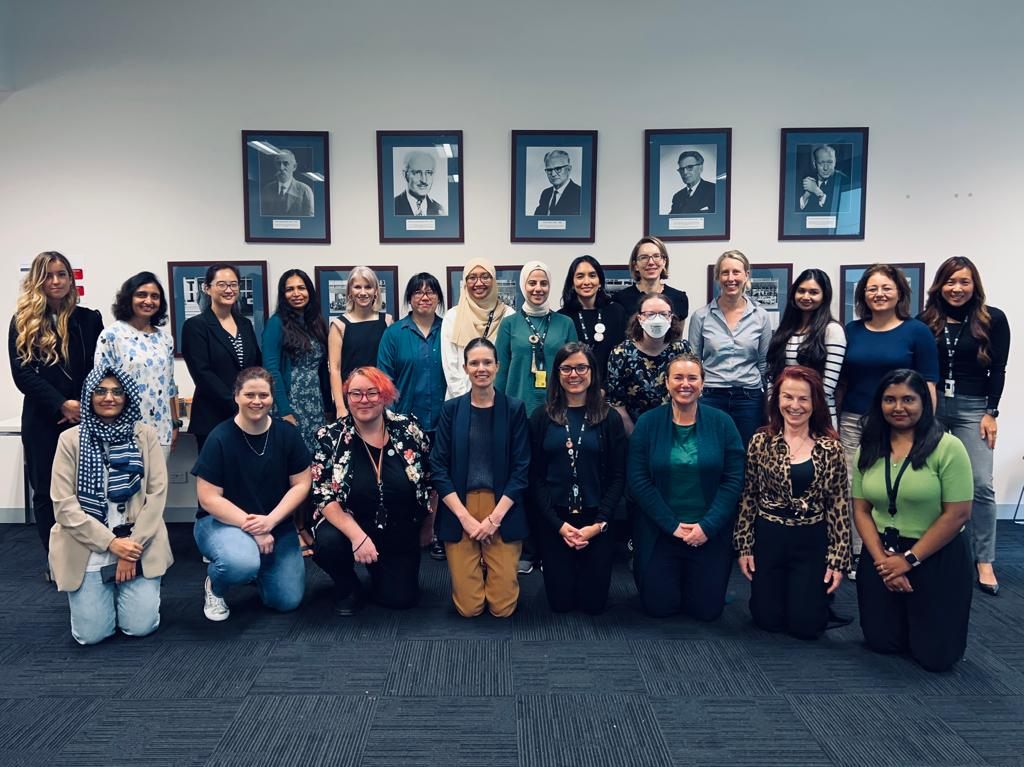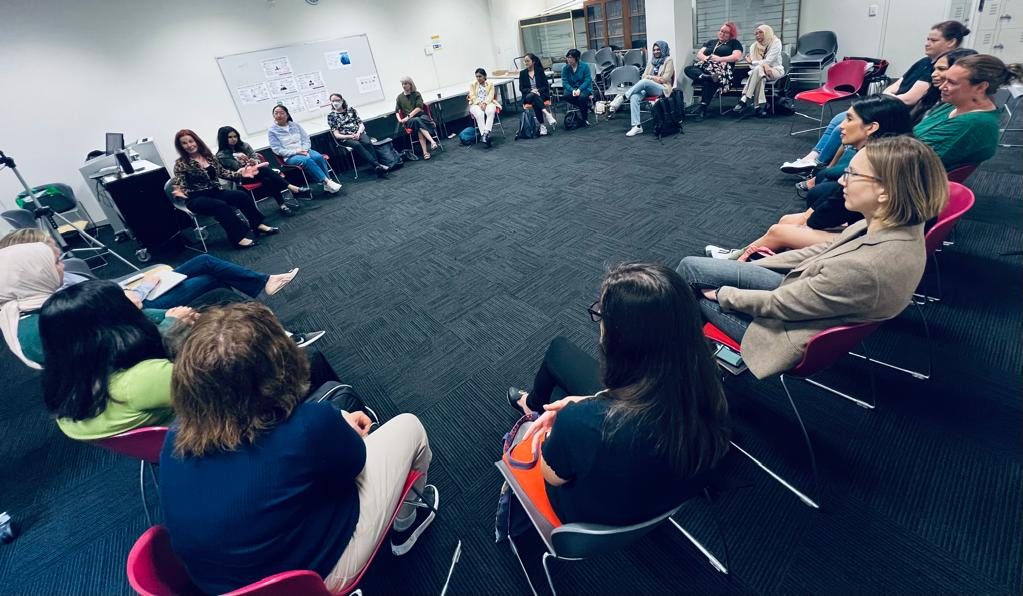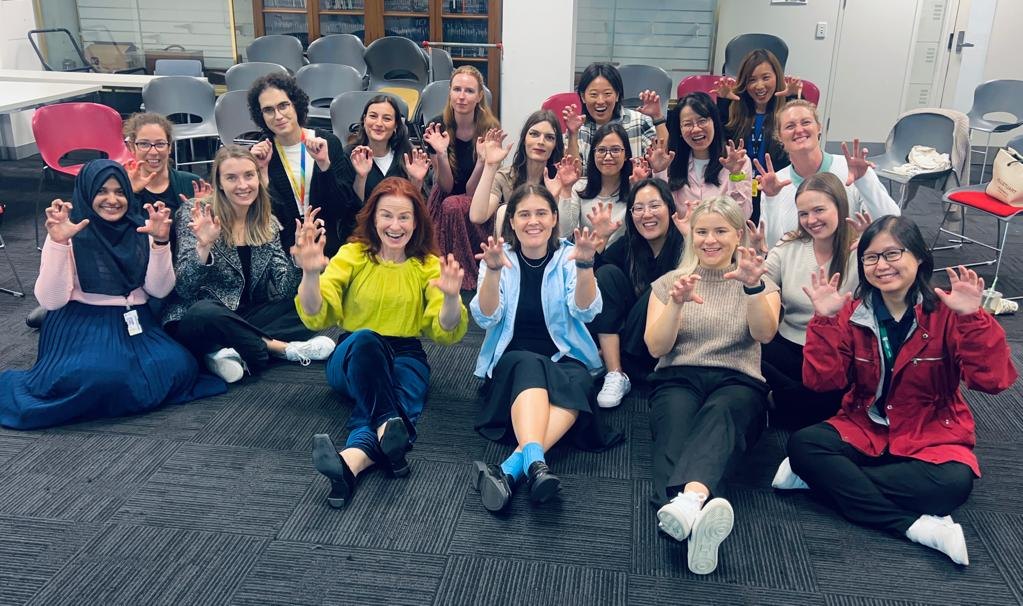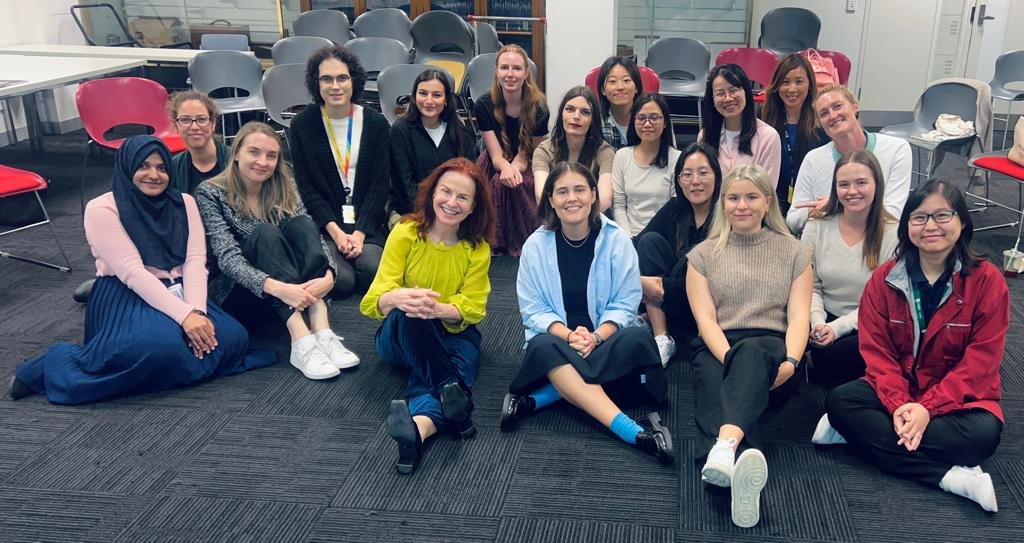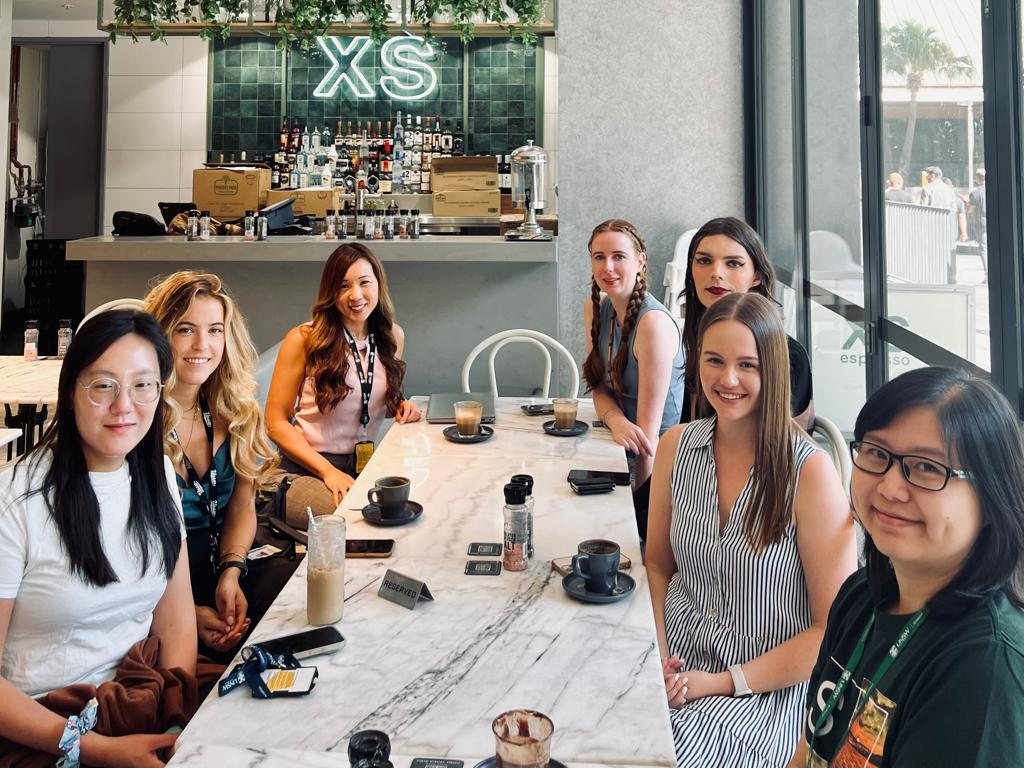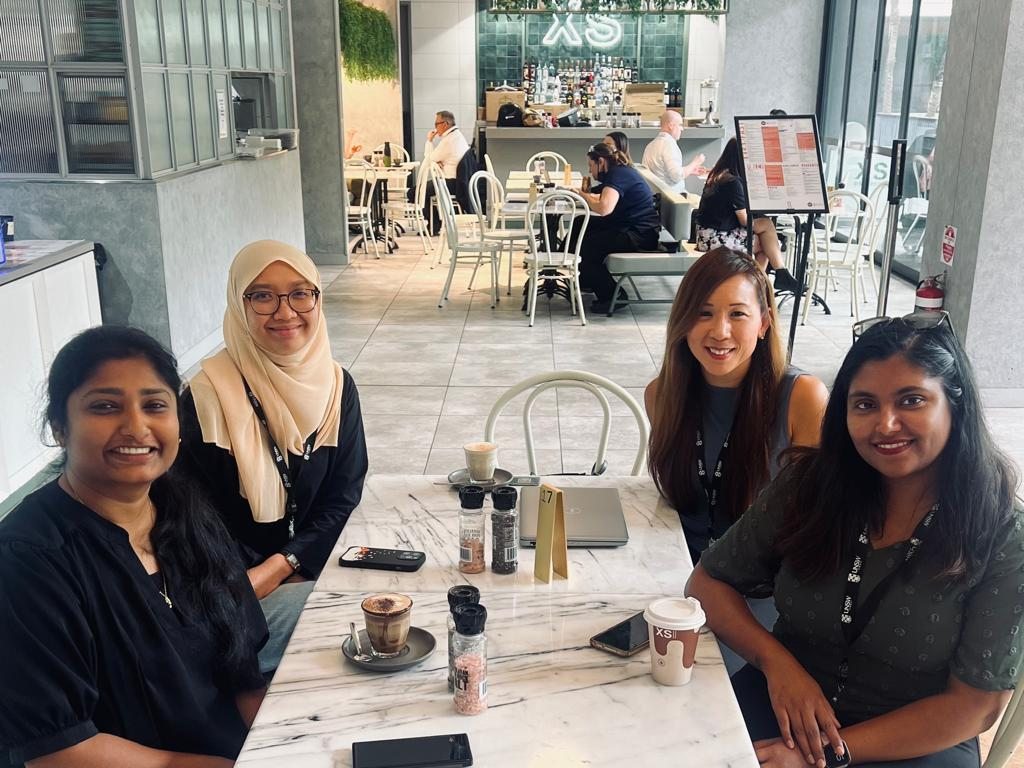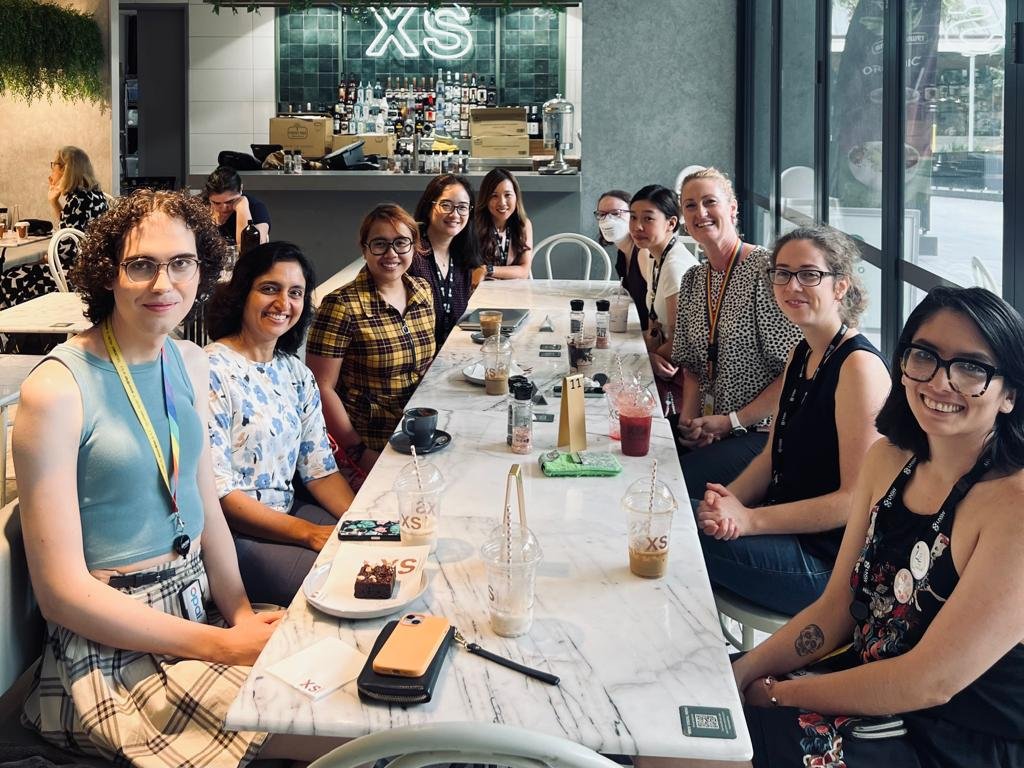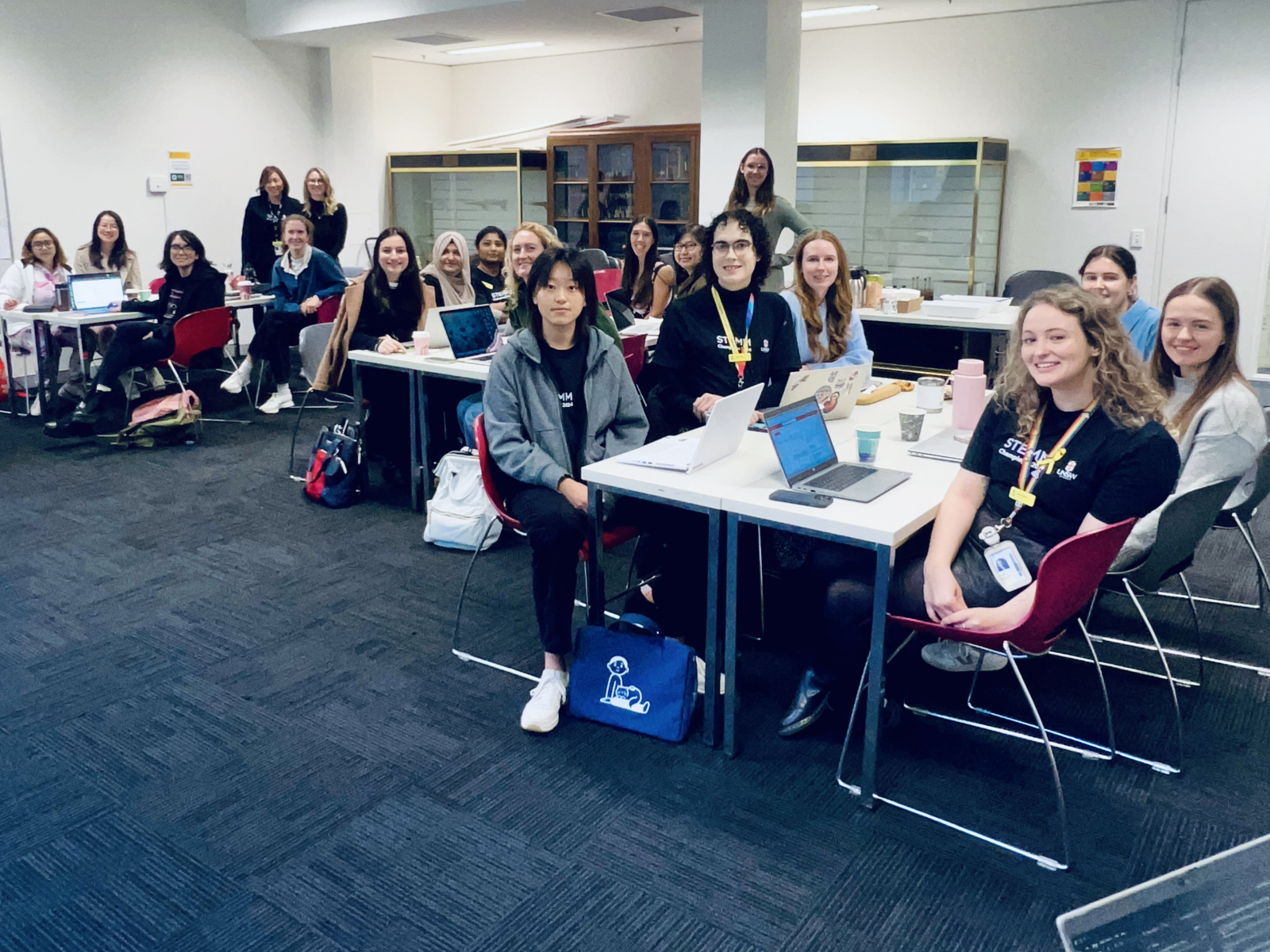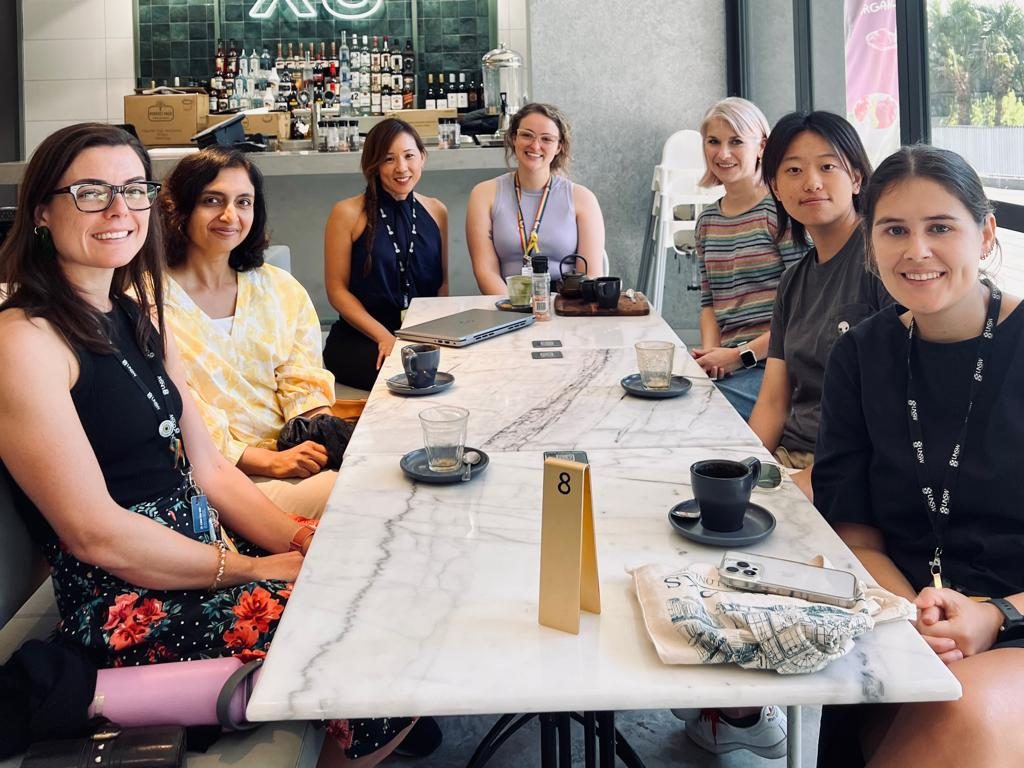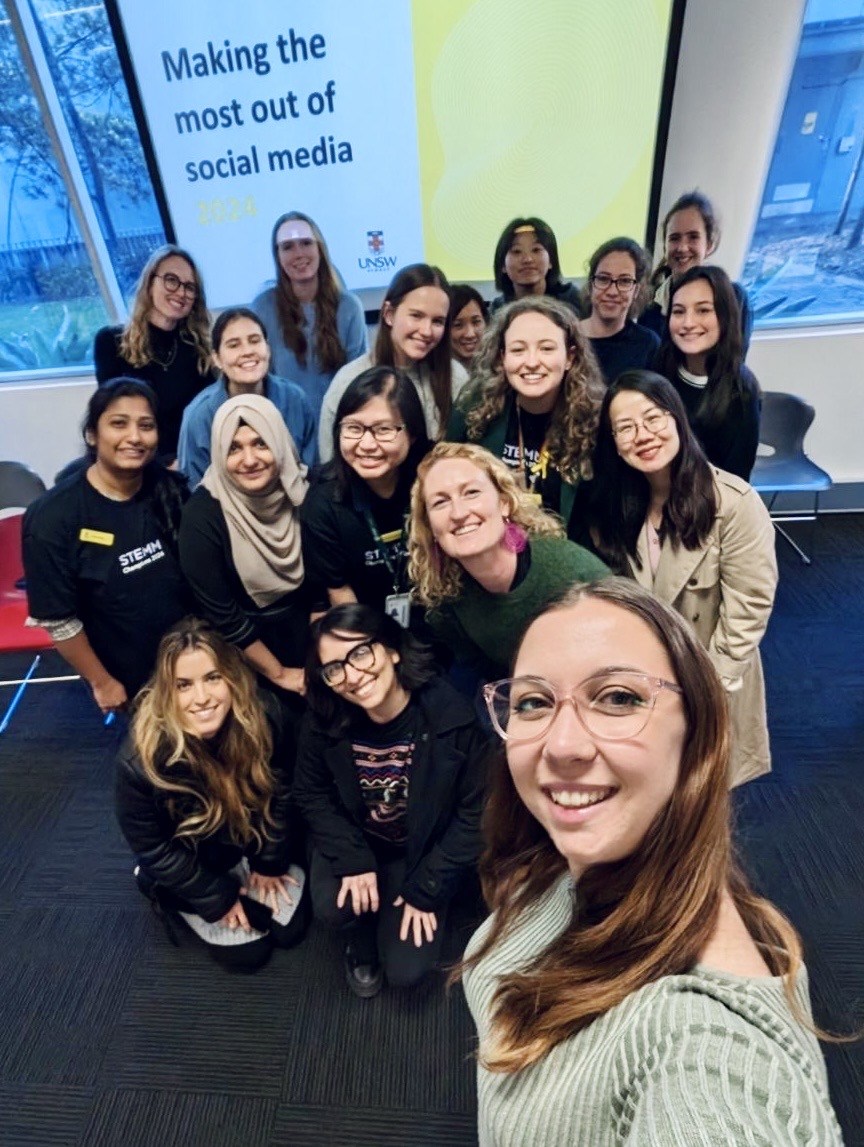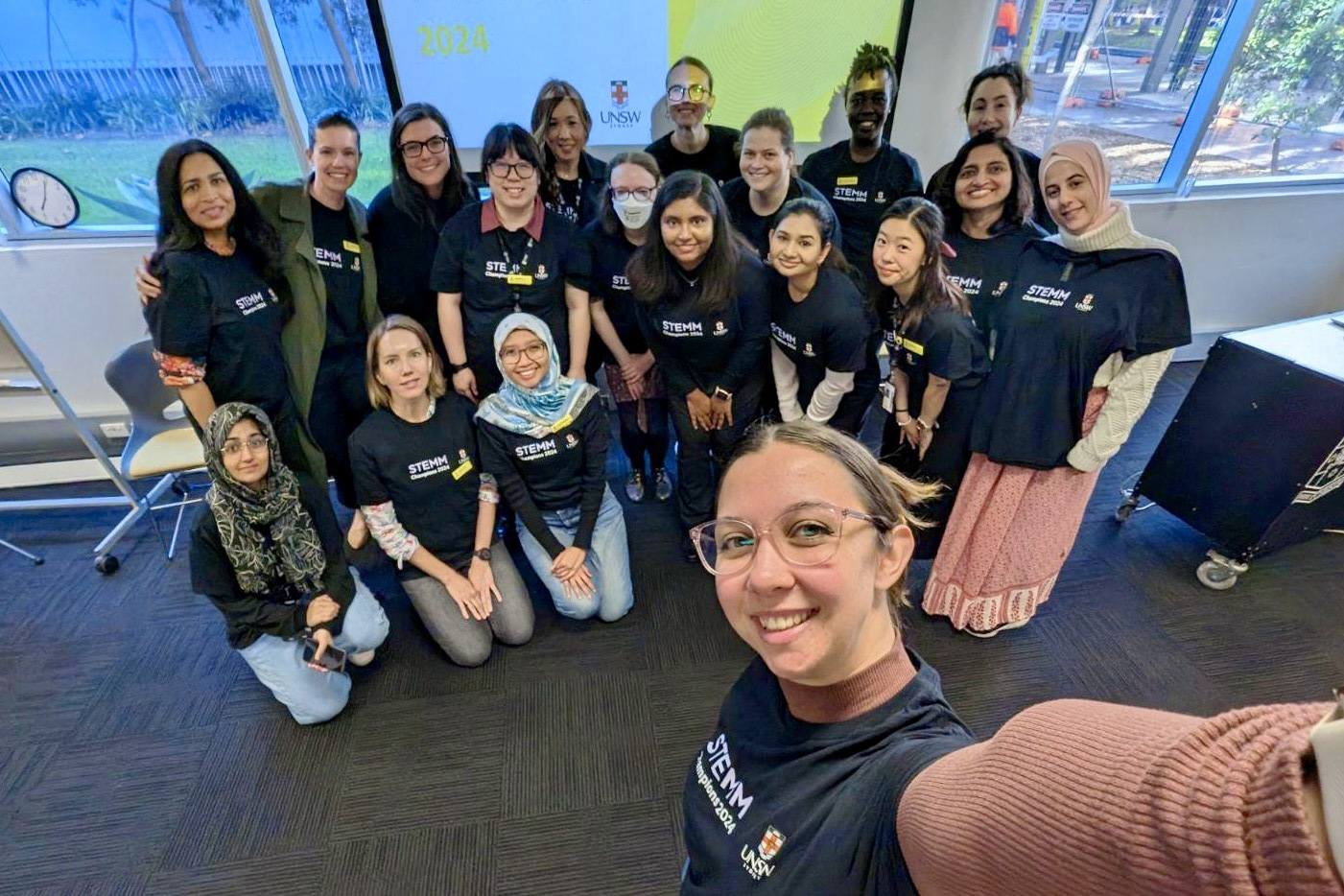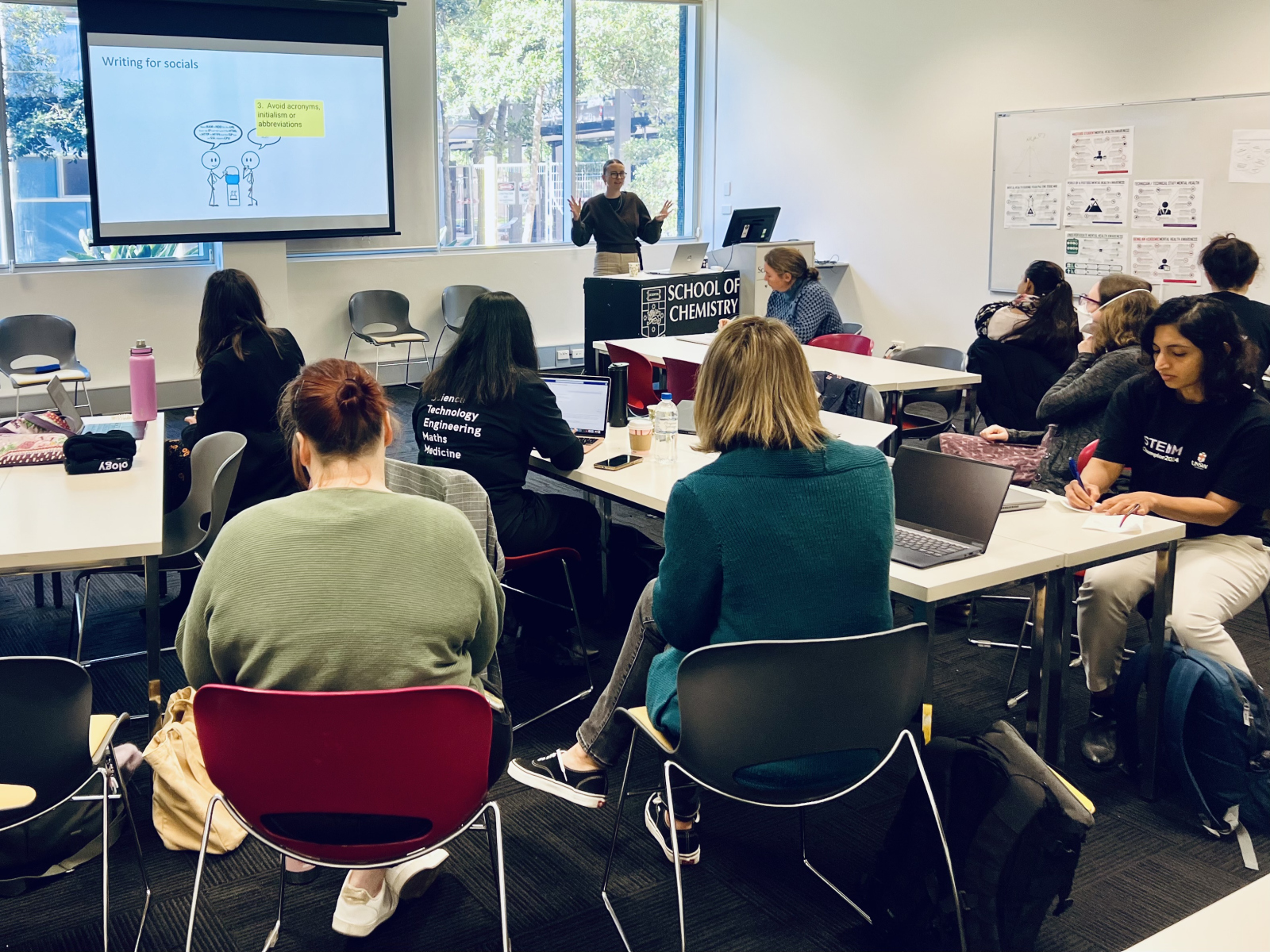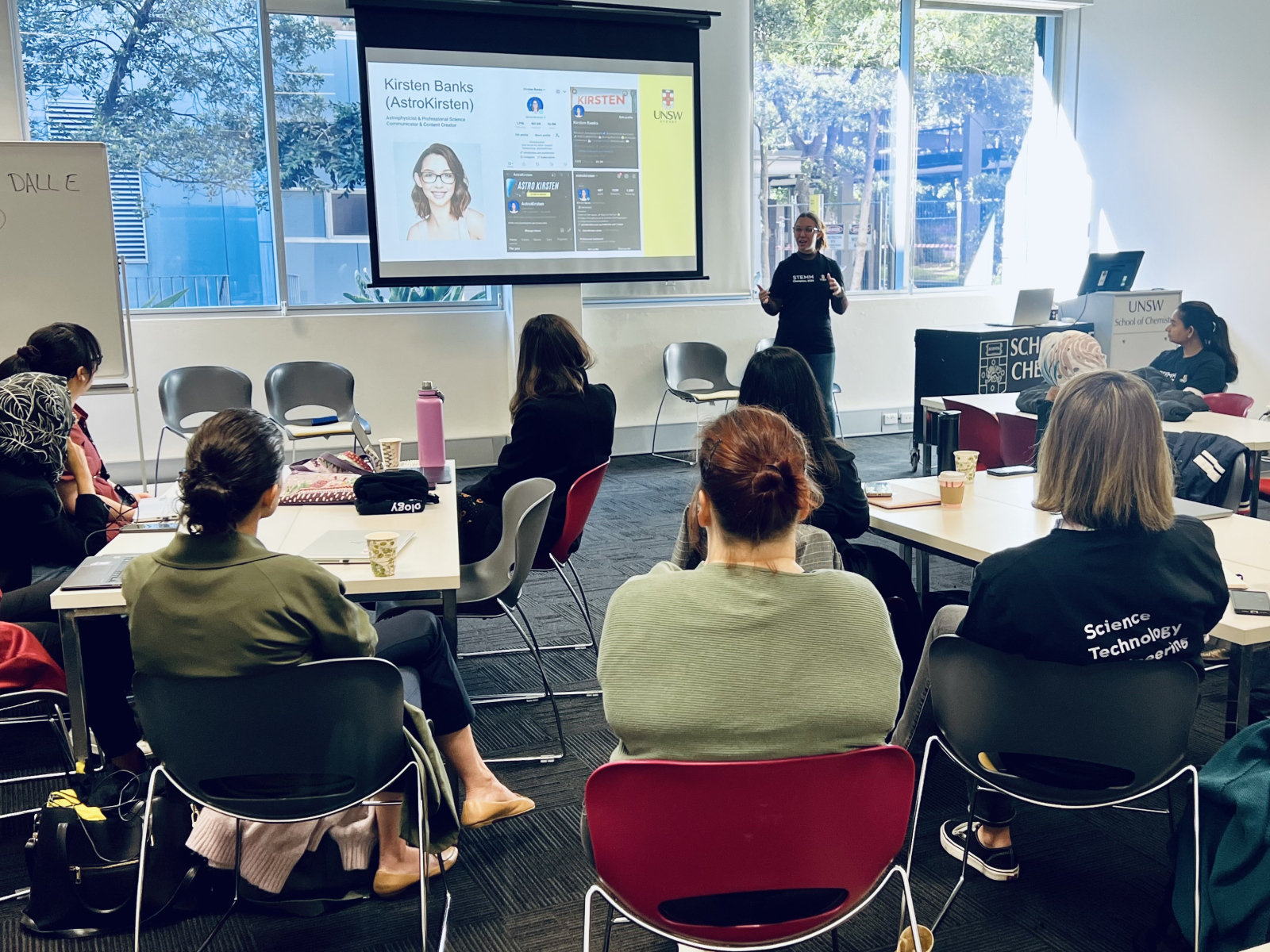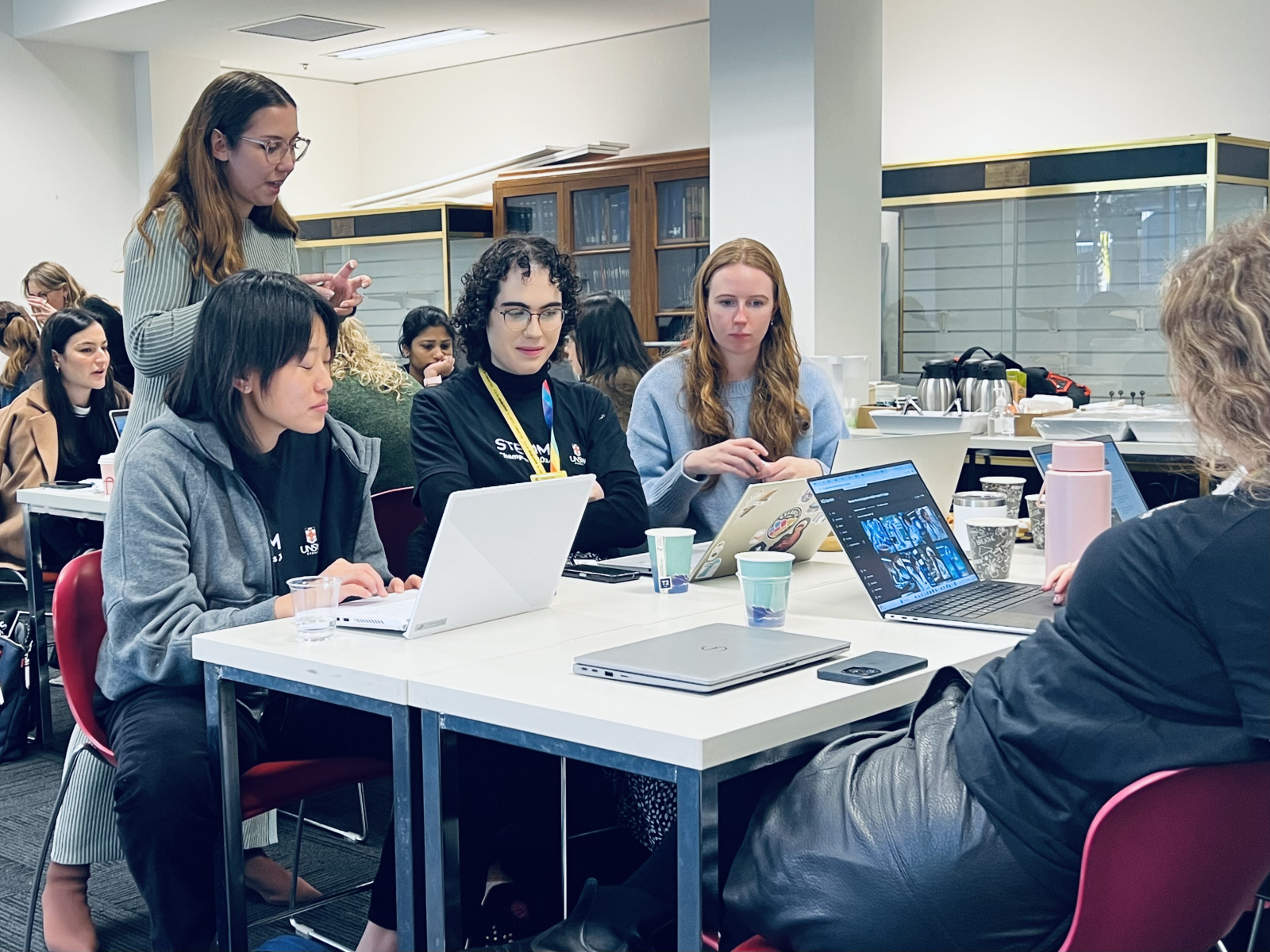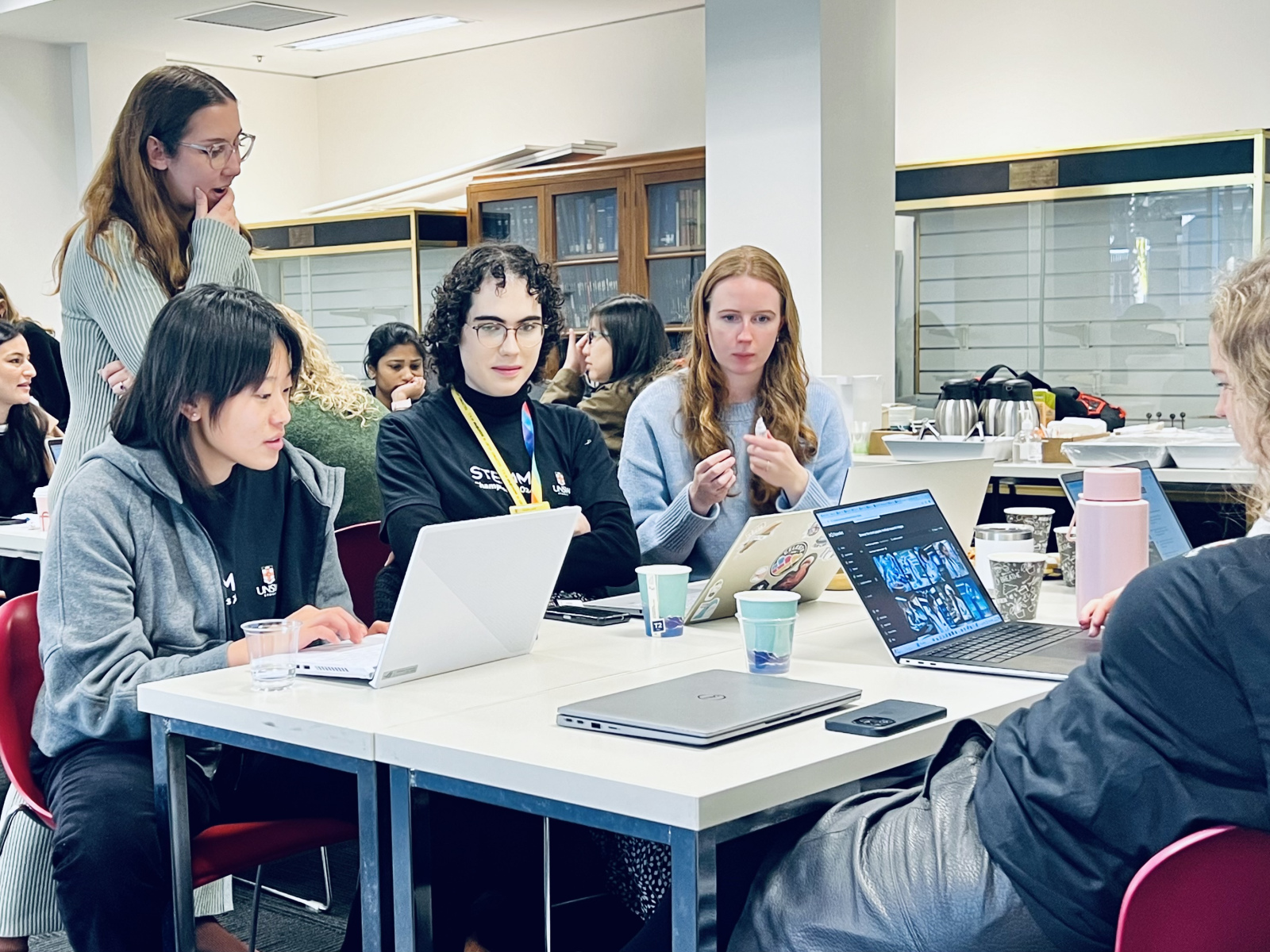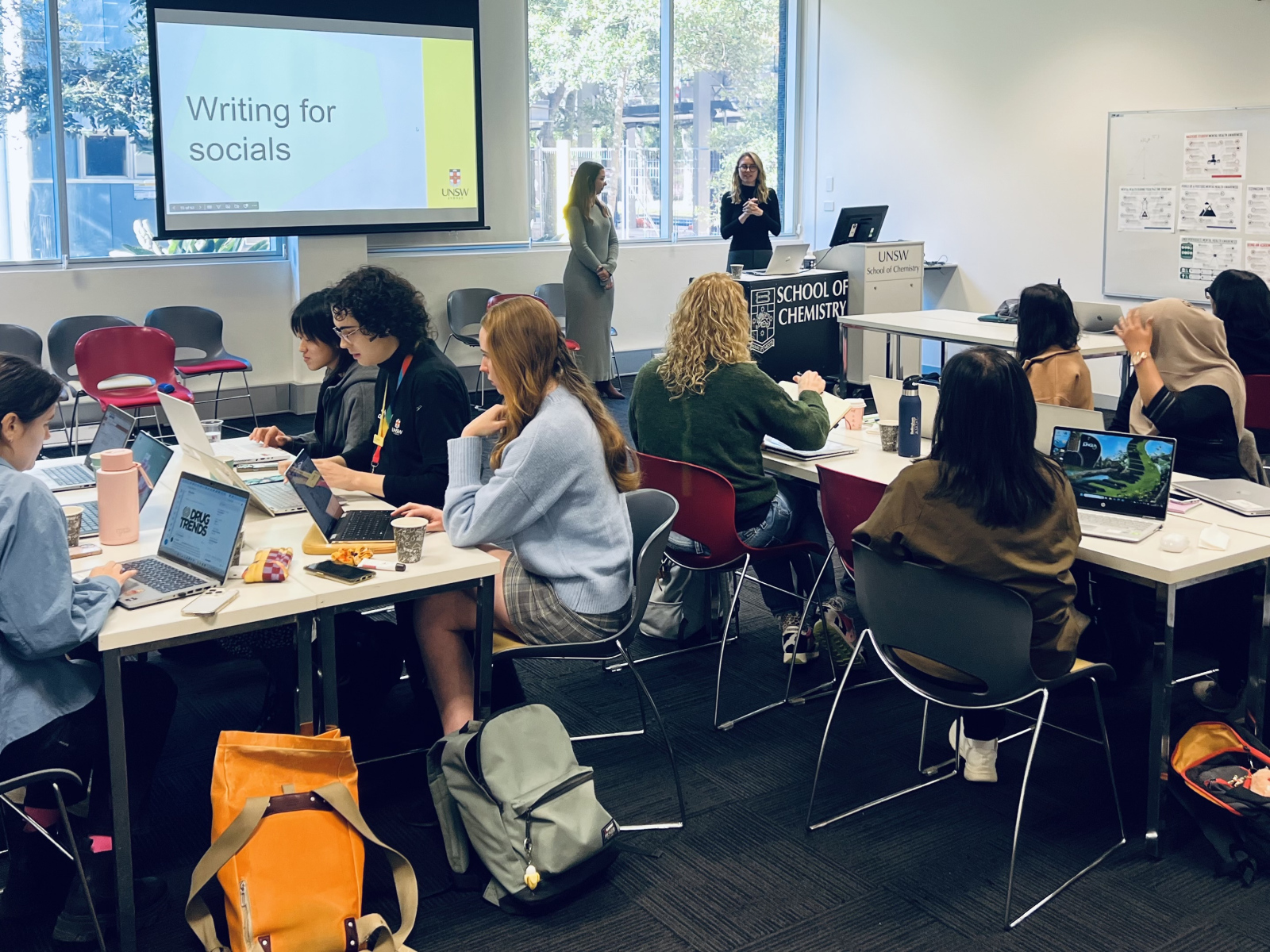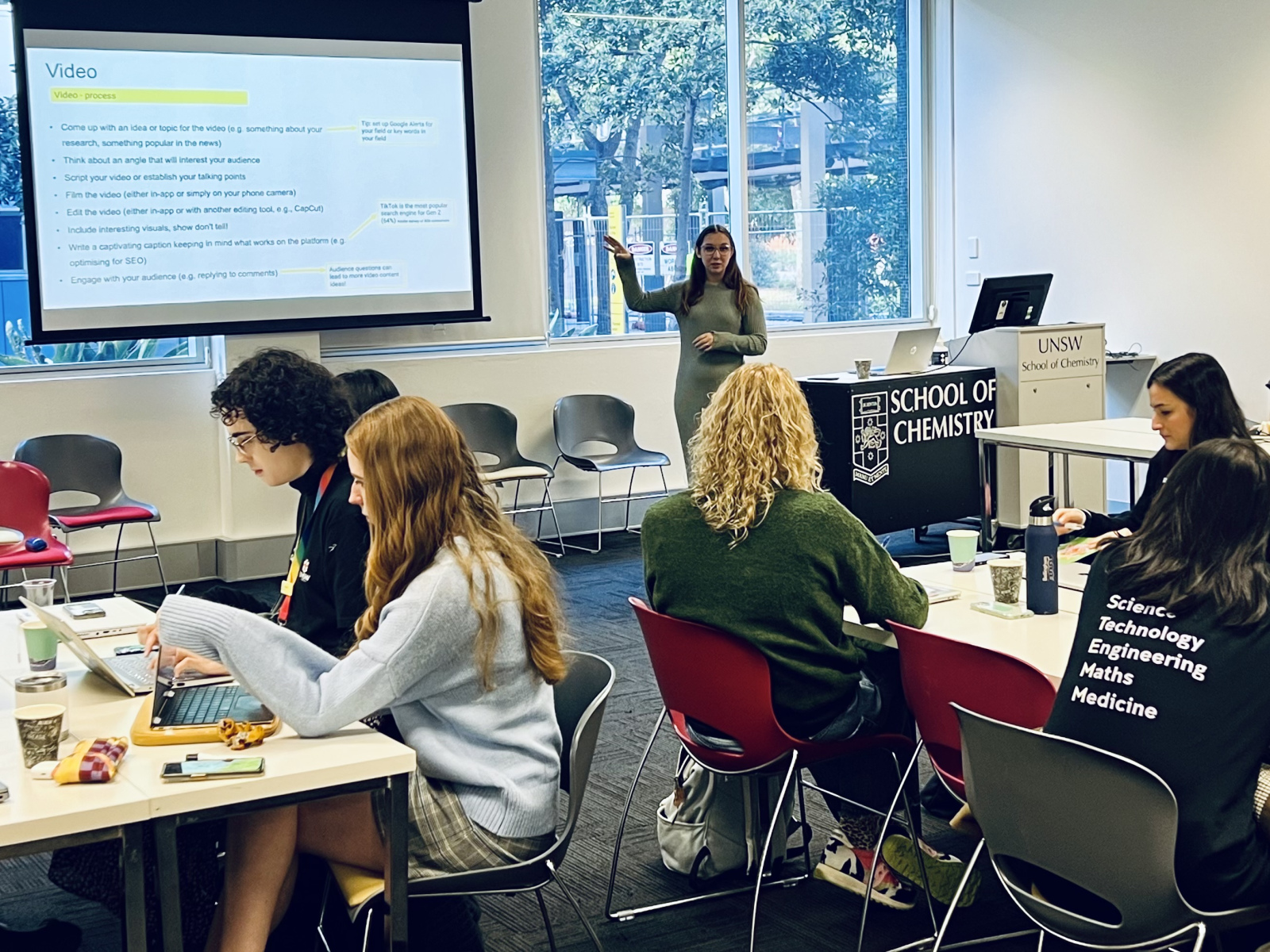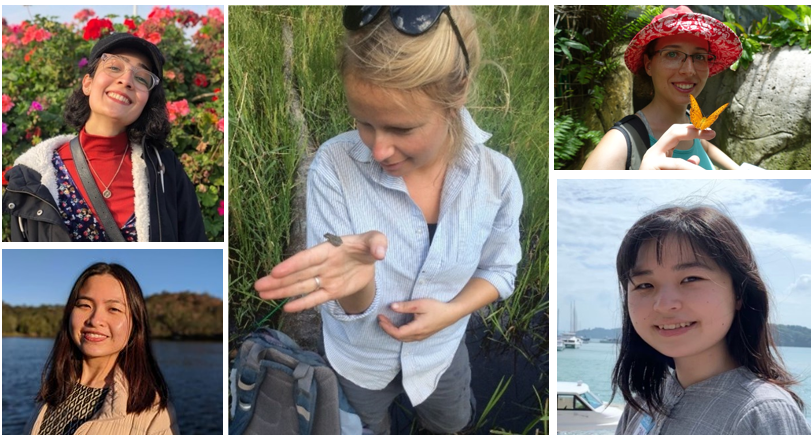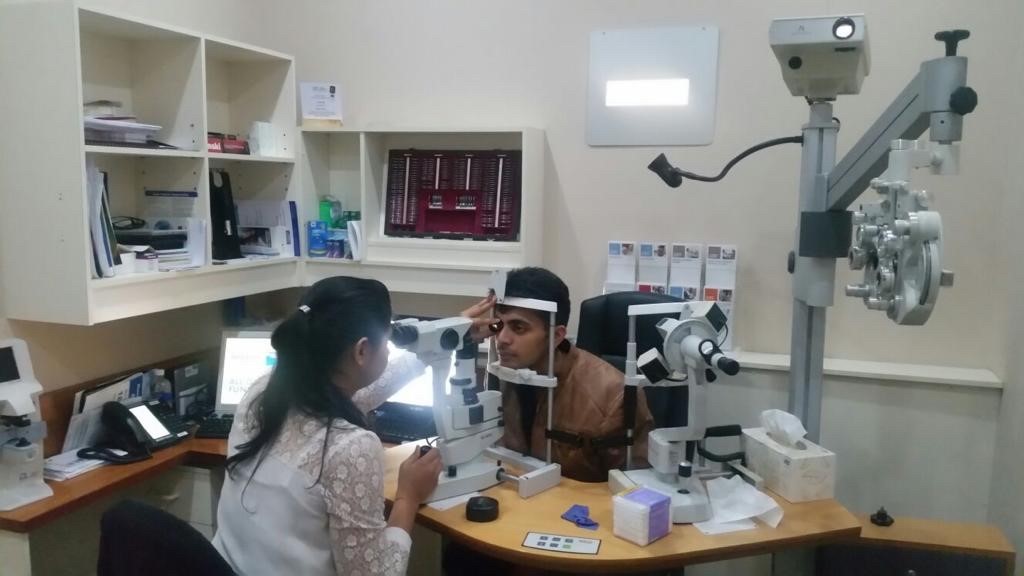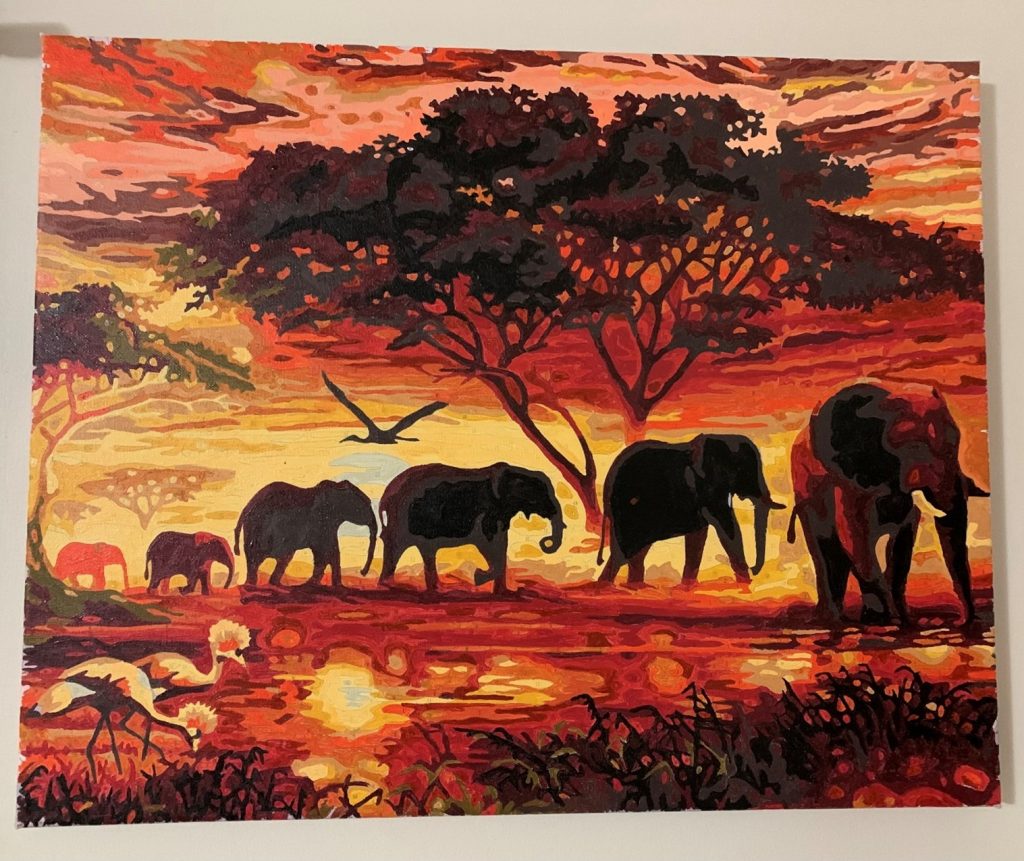By Wanutcha (Soon) Lorpaiboon, Maureen Thompson, Inna Osmolovsky, Divya Shah, and Vina Putra
Women make up only 22% of enrolments in STEM courses in Australian universities and only 28% of our nation’s STEM workforce, with men outnumbering women 3:1 in management positions (STEM Equity Monitor 2021). Numerous studies have shown that there is no significant difference in overall aptitude between girls and boys for STEM subjects – this begs the question, why do most young children draw men when asked to draw a scientist?
Children form their understanding of the world based on what they see around them. In television series, male scientists significantly outnumber female scientists. This disparity in the representation of scientists leads many young children to falsely believe that girls are not suited to the study of science and mathematics. The only way to challenge these misconceptions is by increasing the visibility of women in STEM subjects so that young children can see that there is seat at the table for women, and so that young girls know that they are just as deserving of occupying space at this table as their male counterparts.
The UNSW Maths and Science Champions Program was created with the intention of challenging the stereotypes that often hold young girls back when considering STEM as a career option. The program aims to facilitate change by providing female research students with the skills necessary to become visible scientists and advocates so that they can reach out into the wider community and act as role models for young women and girls. This blog was launched so that women in the program could share their stories – it’s a space where women can write about their research, discuss what it’s like to be a woman in STEM, and offer each other support and guidance through advice on navigating the complexities of academia.
As the 2022 editors of the blog, we would like to introduce ourselves:
Wanutcha (Soon) Lorpaiboon
she/her
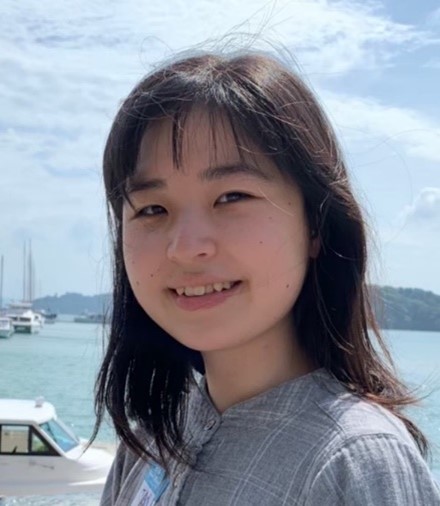
Hi all! I am a PhD student in the School of Chemistry. My research focus is on the application and development of computational models to study the reductive degradation of perfluoroalkyl substances, a class of persistent organic pollutants, and how the process is mediated by inorganic catalysts and enzymes. I like how flexible and interdisciplinary science is to be able to blend such different fields of chemistry, computers, and environmental science. As one of the editors, I hope to make science more accessible, document women’s role in communication, and give visibility to our work! Although I can often be found typing or scrolling through a screen of text, I make time to take long walks through rain and shine in Centennial Park and enjoy listening to book reviews, particularly by a YouTuber called emmie. She reads from a variety of genres and gives creatively themed reviews without giving away too much of the plot.
LinkedIn: www.linkedin.com/in/wanutcha-lorpaiboon-839541203
Maureen Thompson
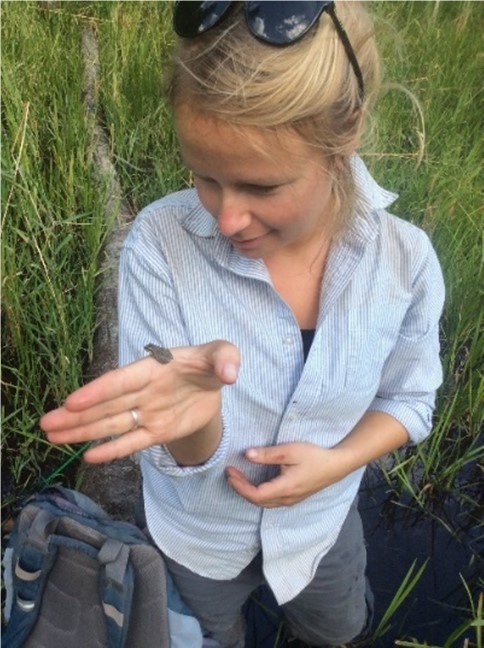
Hello, I am a PhD researcher in the Centre for Ecosystem Science. I am delighted to combine my passions for citizen science, amphibian conservation, and big data in my research at UNSW and The Australian Museum. I’m using available data to understand frog breeding patterns and community co-occurrence across Australia. I’m also working to incorporate an understanding of participant motives and behaviour to improve the spatial, temporal, and taxonomic data collected through citizen science. I love the 99% invisible aspect of science – how in a moment of curiosity, I can learn about something that was around me, unexamined, the whole time. As one of the blog editors, I hope to come up for air from my personal purgatory of Stack Overflow tabs and practice presenting, and relating to, science in a palatable way. In my free time I enjoy listening to the podcasts American Hysteria and Swindled while building papier-mâché projects for my rat. If you don’t have a rat to spoil, I recommend marveling at the long-finned eels in Centennial Park – their life story is incredible.
Inna Osmolovsky
she/her
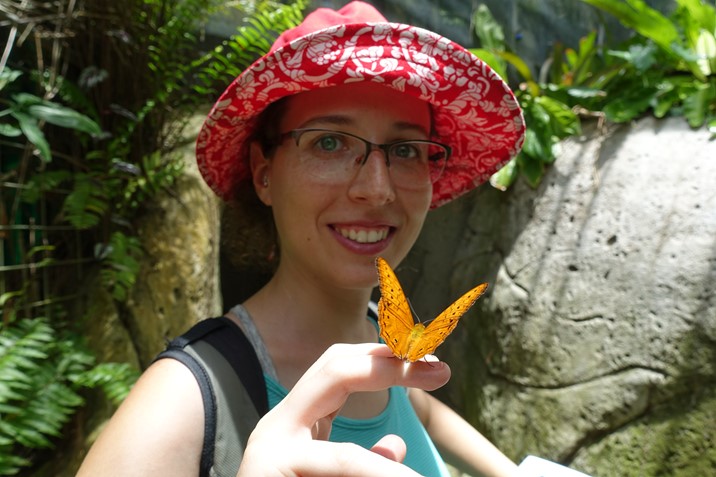
Hi, I am a PhD student in the Environment & Ecology Research Center. Currently, I am exploring how plants migrate in response to climate change. I hope my project will have applications for nature conservation and the mitigation of climate change. I love science because I enjoy learning how nature works, spending so much time observing something that you become a part of it, forgetting, for even just a moment, the real world. I believe that to solve the problems humanity currently faces we need a diverse scientific community, to encourage diverse ideas and possible solutions. This is one of the reasons I am grateful to take part in the Women in Maths and Science Champions Program – I get to encourage young women to pursue a career in science. While doing data entry, I enjoy listening to podcasts – ‘Ologies’ and ‘Spirits’ are two of my favourites. I also love nature and especially the desert, which I hope to explore soon.
Twitter: https://twitter.com/InnaOsmol
Divya Shah
she/her
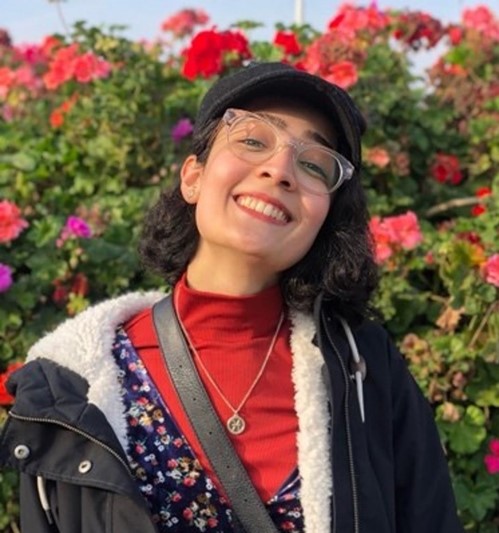
Hello guys, gals and non-binary pals! I am a PhD student in the School of Biotechnology and Biomolecular Sciences (BABS). I use cultured mammalian cells and mouse models to screen mitochondrial uncouplers that could potentially be used as drugs to combat the growing epidemic of metabolic disease. I hope that my work will one day help to improve prognosis and quality of life for those suffering from diseases such as non-alcoholic fatty liver disease and type 2 diabetes. I have always loved asking questions and what I love most about research is that I get the opportunity to find answers and figure out how things work on a molecular level. I firmly believe in the importance of inclusion and diversity in science – without representation we lack the necessary perspectives required to address and tackle issues that disproportionately impact marginalized groups in our society. I hope that in being a blog editor for the Women in Maths and Science Champions Program I will be able to help increase the visibility of a diverse community of scientists who are working tirelessly to solve important problems impacting our society and the planet we all share. When I’m not falling down a research rabbit hole, I like to spend my time learning more about art, activism and history, planning my next travel adventure, sewing clothes, playing with my cats, and listening to true crime podcasts.
LinkedIn: https://au.linkedin.com/in/divya-shah-574a60194
Vina Putra
she/her
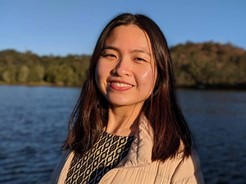
Hello, greetings from the UNSW School of Materials Science and Engineering! Yes, this is where I am currently doing my PhD. My research aims to understand how stem cells, as living materials that build tissues, adapt to a range of biochemical and biophysical cues – emulating those in development and healing. I specifically study the nanosized skeletal filaments of the cells which are responsible for helping cells adapt and acquire the structure and function that indicates what type of tissues they become. Ultimately, I hope to use this knowledge to better engineer materials and/or devices for regenerative medicine. I love that every minute I spend at work, I get to learn and bridge different disciplines: biology, physics, mechanics, and chemistry. Lifelong learning is what I value most, and Science has given me the opportunity to continuously seek knowledge (since the day I got fascinated by a chick embryo heartbeat in high school!). As one of the editors for the Women in Maths and Science Champions Program blog, I look forward to promoting accessibility of knowledge and opportunities to learn and pursue Science for young students who are always curious about how nature works. I also love traveling, writing and sharing ideas/experience around science and academia through my own blog – please do check it out!
LinkedIn: https://www.linkedin.com/in/vina-dewi-lestari-putra/
Twitter: https://twitter.com/Phienbelle369
Personal blog: https://www.miss-academia.com/
Stay tuned for fortnightly blog posts where we’ll be interviewing our fellow female scientists, discussing ways to extend your reach / advocate for science, and much more! If you would like to collaborate on a blog post or other project, please reach out to us through email or social media.

